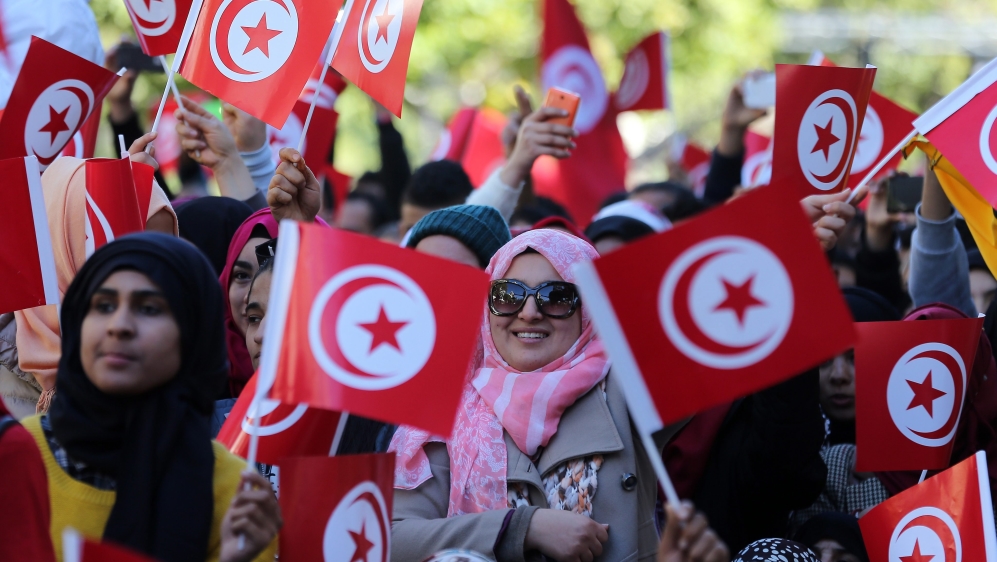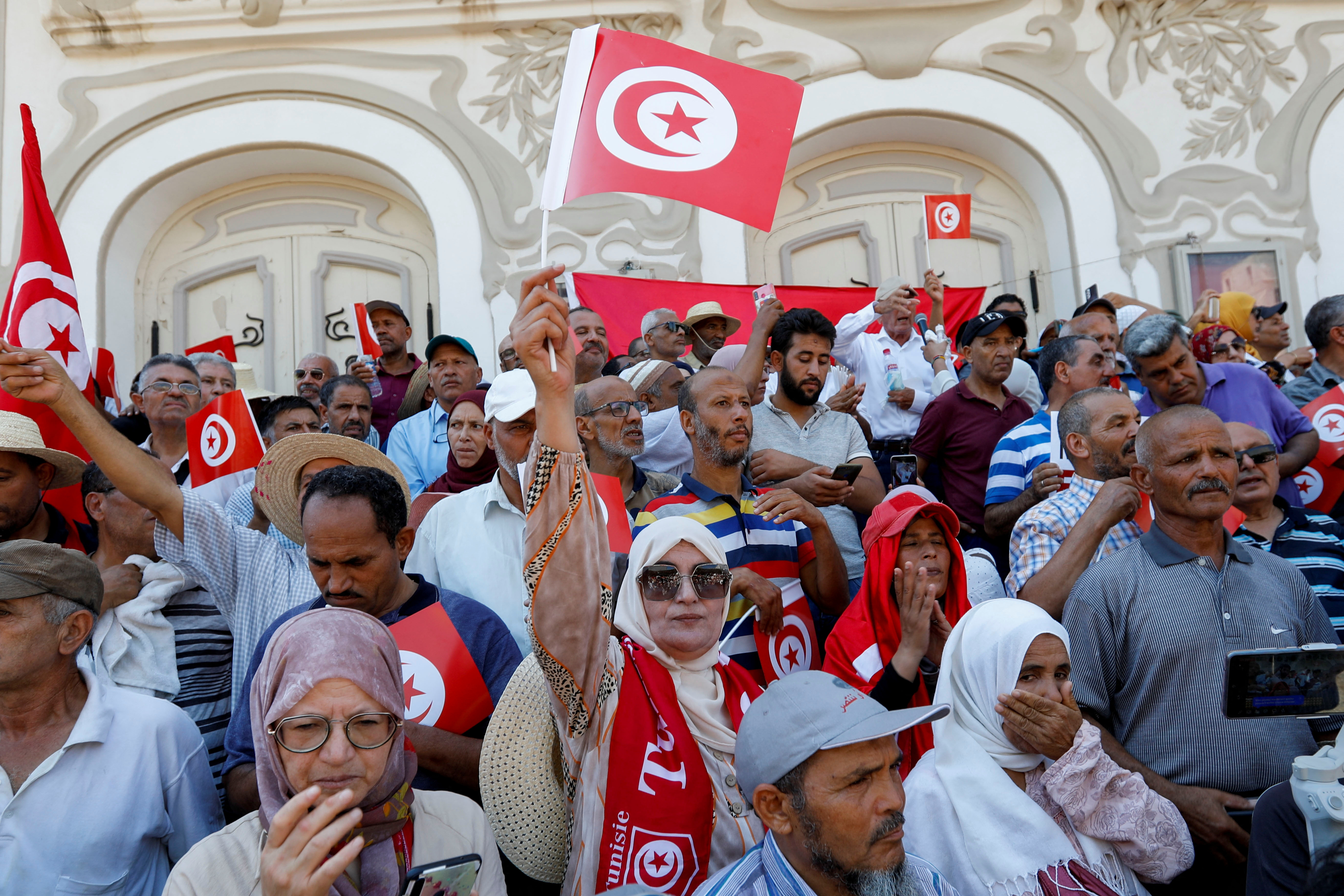General Discussion
Related: Editorials & Other Articles, Issue Forums, Alliance Forums, Region ForumsAre women's rights used as a smokescreen in Tunisia?
Are women’s rights used as a smokescreen in Tunisia?
Activists say President Kais Saied is using female empowerment as a facade and his new constitution reverses their hard-earned gains.
 ?resize=770%2C513
?resize=770%2C513
Tunisian women wave national flags and shout slogans during celebrations to mark the fifth anniversary of the uprising that removed President Zine El Abidine Ben Ali [Reuters]
By Arwa Ibrahim
Published On 29 Sep 202229 Sep 2022
With the appointment of Najla Bouden as Tunisia’s prime minister last year and the election of a record 10 women to the country’s 24-member cabinet, the Arab state appeared to be making great strides in its protection of women’s rights. On the face of it, Tunisia – which for decades stood out in the region as a leader in its promotion of gender equality – was continuing in the right direction. But some women’s rights activists say President Kais Saied is merely using female empowerment as a facade, while his newly adopted constitution reverses gains made by Tunisian women in their decades-long struggle for equality, representation and more rights.
In July, Tunisians voted in favour of the new constitution, which ultimately swapped Tunisia’s hybrid parliamentary democracy with a system that gives the president sweeping powers. In the year before the constitutional referendum, Saied sacked the government and suspended parliament. He also started ruling by presidential decree and dissolved democratic institutions, including the Supreme Judicial Council and parliament. His moves drew widespread international criticism.
 ?w=770&resize=770%2C513
?w=770&resize=770%2C513
People take part in a protest against President Kais Saied’s referendum on a new constitution in Tunis last July [File: Zoubeir Souissi/Reuters]
‘No power’ for change
For Hafiza Choucair, a university professor and women’s rights activist who has spent her whole life fighting for gender equality in Tunisia, the appointment of Bouden as prime minister was only “honourary” as she lacks the power to implement decisions. Choucair’s thoughts on the presence of 10 women in Tunisia’s cabinet were similar. “Women in government decision-making positions must come with an agenda that focuses on the advancement of women’s rights. And they [women in government] need to have the power to implement it,” said Choucair. “But we’ve not seen any of that. Instead, Saied has strengthened his hold on power and these women are merely tools for implementing the will and policies of the president.”
Bouchra Belhaj Hmida, a Tunisian lawyer and women’s rights activist for the past 40 years, agreed. “Having a female prime minister in an Arab and Muslim country is a positive thing. Symbolically it means we’ve overcome an important barrier. But she [Bouden] doesn’t have any real powers,” said Belhaj Hmida.
 ?w=770&resize=770%2C514
?w=770&resize=770%2C514
Bouchra Belhaj Hmida is a Tunisian lawyer and women’s rights activist who has worked to advance women’s rights for four decades [Said Zouari/Al Jazeera]
. ...
 ?w=770&resize=770%2C578
?w=770&resize=770%2C578
Hafiza Choucair, a university professor and women’s rights activist, has spent her life fighting for gender equality in Tunisia [Said Zouari/Al Jazeera]
. . . . .
 ?w=720&resize=720%2C720
?w=720&resize=720%2C720
Ahlam Boursal, the general secretary of the Tunisian Association of Democratic Women, says violence against women is a major issue facing Tunisian communities [Said Zouari/Al Jazeera]
. . . . .
Many women’s rights activists say the dissolution of the 2014 constitution is at the heart of the problem. For Belhaj Hmida, the new constitution “lacks parity between men and women” because while the second article of the 2014 constitution affirmed Tunisia as a “civil state based on citizenship, the will of the people and the supremacy of the law”, Article 2 of the new constitution only describes the state system as a republican one. “Not only did the 2014 constitution protect the civic state, it was also consistent with universal human rights – the most basic guarantor of women’s rights,” said Belhaj Hmida. “But now, all that’s gone.”
https://www.aljazeera.com/features/2022/9/29/has-female-representation-in-tunisias-govt-advanced-rights